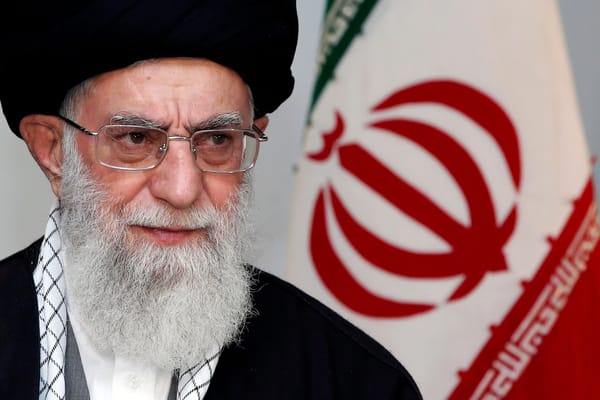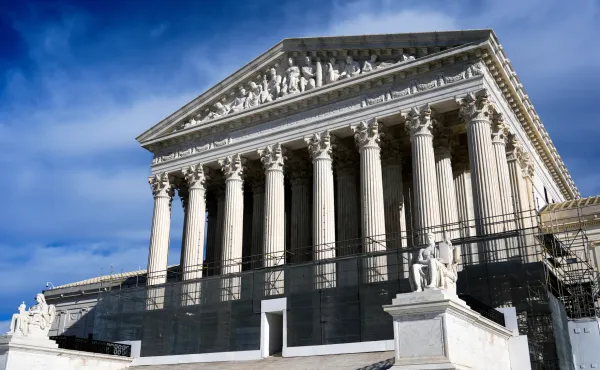Tariff Roller Coaster
The White House’s announcement last week of new tariffs on foreign imports sparked an escalating tariff battle with China that has resulted in reciprocal rates of 125% on both American and Chinese imports, with both sides continuing to hold firm in the trade standoff. More than 75 countries have expressed willingness to negotiate, and on Wednesday, President Trump announced a 90-day suspension of tariffs for these countries, including the European Union, which has shown willingness to discuss a mutual zero-tariff agreement. After the initial tariff announcement last week sent equity markets off the cliff, stocks responded favorably to Trump’s announced tariff pause, with the Dow jumping 2,962 points, while stopping about 2,000 points short of the pre-tariff level. Uncertainty prevails as markets struggle to predict the future.
💰 Budget Bill Passes with Significant Spending Cuts Promised
The House narrowly passed a Republican budget blueprint aimed at cutting taxes and government spending. The 216-214 vote came after reassurances to conservative budget-hawk holdouts that the plan would include deeper spending cuts than initially outlined, with Representative Chip Roy citing commitments to at least $1 trillion in "real reductions in mandatory spending" and reforms to Medicaid addressing “eligibility, waste, fraud [and] abuse.” All such commitments remain provisional until enacted. While earlier eras allowed for more reliable forecasting of fiscal policy impacts, today's economy is deeply intertwined with government activity, making the ramifications of significant budget reductions increasingly difficult to anticipate.
🇮🇷 U.S.-Iran Relations Shift, High-Level Talks “Constructive”
In what might be either a significant diplomatic move by Iran or simply a ploy to gain favor with the U.S., some outlets have indicated that Iran has ordered its military personnel to leave Yemen, seemingly abandoning its Houthi rebel allies following last month's U.S. airstrikes. A senior Islamic Republic official cited the Trump administration's military actions as the direct cause, noting that Tehran's primary concern is now “Trump and how to deal with him.” Iran has historically maintained a defiant stance toward the U.S., making this acknowledgment notably uncharacteristic for the hardline Shiite regime. President Trump has pressed for negotiations with Iran that might result in a deal, reemphasizing that Iran “cannot have a nuclear weapon,” warning that Iran would be “in great danger” without an agreement, and imposing another round of sanctions on Iranian entities involved in nuclear weapons development. As the first direct contact between a Trump administration and an Iranian official, U.S. envoy Steve Witkoff and Iranian Foreign Minister Abbas Araghchi met in Oman, wrapping up talks yesterday. The meetings were described by both sides as “constructive”, with another round of talks scheduled for April 19.
⚖️ Supreme Court Sides with the Trump Administration in Three Cases
Over the last few weeks, we’ve listed a few decisions from lower courts seen as setbacks for the Trump administration. This week, the Supreme Court sided with the Trump administration in three significant cases:
- Lifting a block on deportations of suspected gang members under the 1798 Alien Enemies Act
- Blocking a lower court order that would have required reinstatement of 16,000 federal employees laid off in February
- Affirming the freezing of Department of Education grants that had been canceled over diversity-related concerns
📱 TikTok Ban Reprieve Extended
President Trump has granted TikTok another 75-day extension before the U.S. ban takes effect, citing progress toward a partial sale deal. This provides additional time for negotiations as the platform seeks to maintain its operations in the American market.
⛪ China Tightens Restrictions on Religious Freedom
The Chinese Communist Party is preparing new regulations that would prohibit foreigners from preaching, sharing their faith, or establishing religious organizations without formal government approval. Officials claim the rules are for national security, but critics view them as part of ongoing efforts to control religious expression.
📝 White House Blackballs Pronoun-Flaunting Journalists
White House Press Secretary Karoline Leavitt confirmed Wednesday that the administration has adopted a policy of not responding to reporters who include pronouns in their email signatures. “Any reporter who chooses to put their preferred pronouns in their bio clearly does not care about biological reality or truth and therefore cannot be trusted to write an honest story,” the press secretary told The New York Times.





